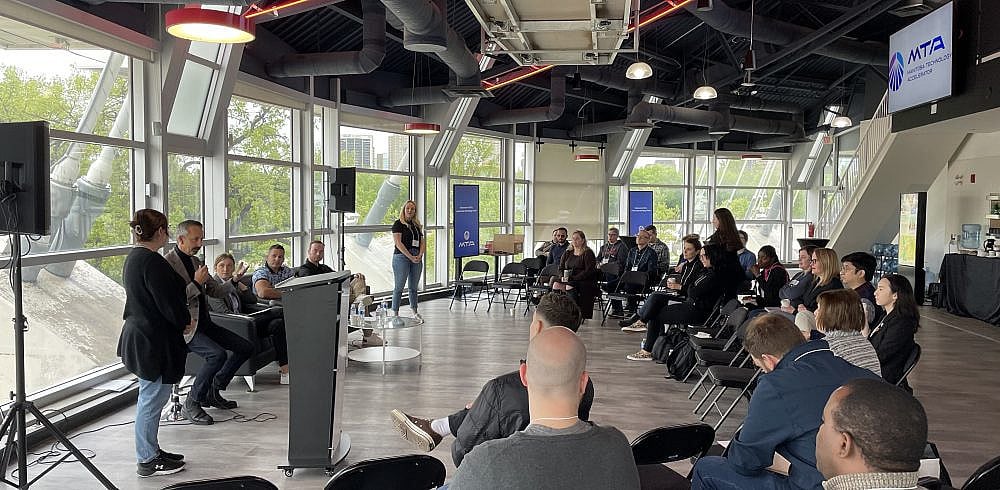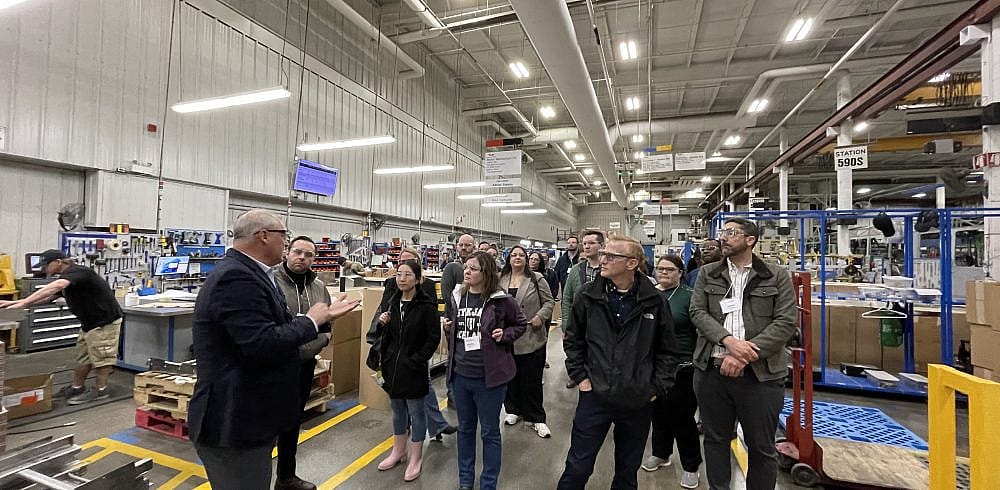Written by Keanna Kennington, Marketing and Communications Coordinator
6-minute read
On November 24, 2022, we welcomed Chrissie Arnold, the Director of Advisory Services at Future Forum and Slack, to speak to the business leaders of Winnipeg on how to win the battle for talent.
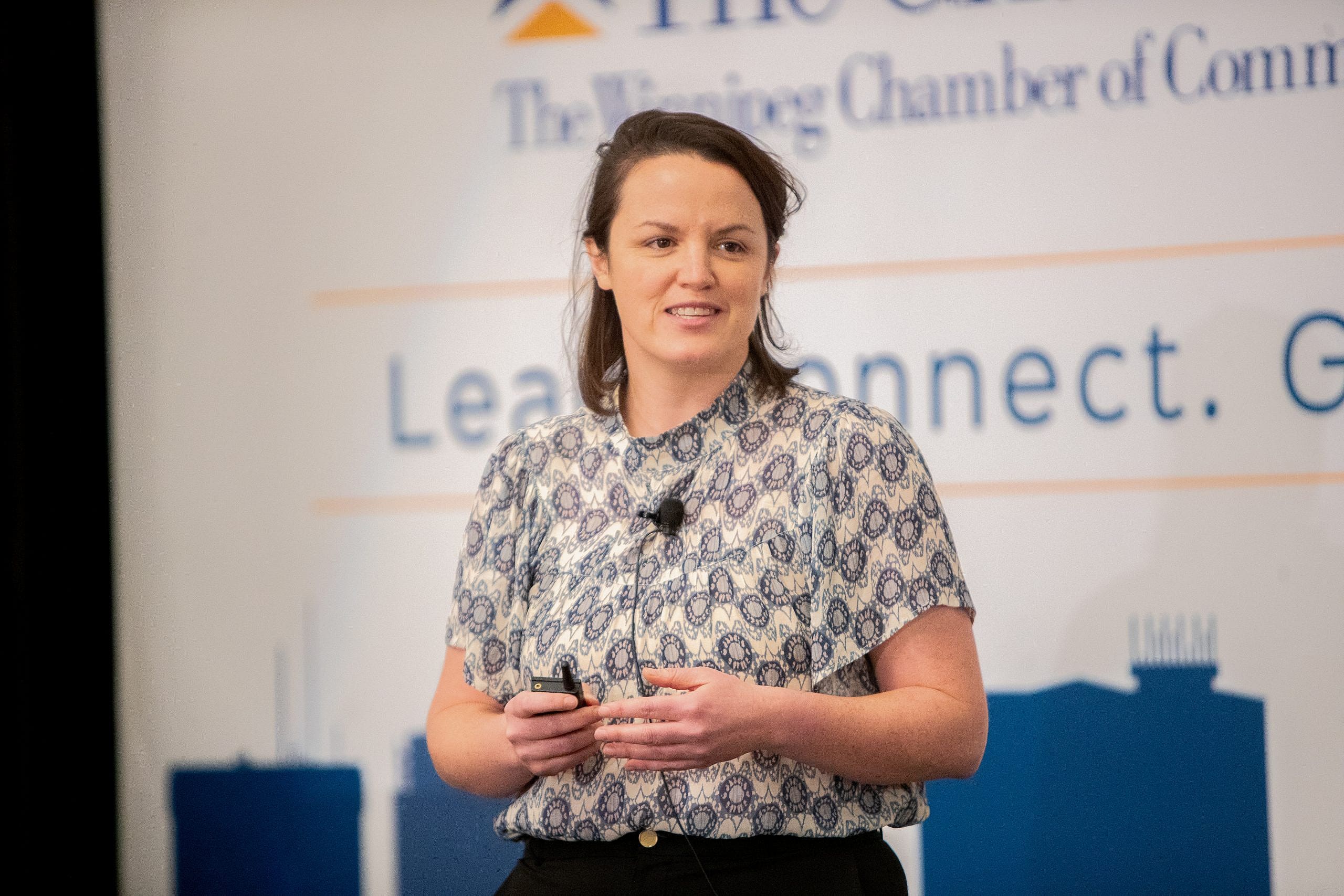
Photography by Daniel Crump
Future Forum is a consortium that focuses on shifting how we think about work. They conduct a quarterly survey of over 10,000 desk workers around the globe to collect data on the employee experience. With over two and a half years of data, their mission is to help companies and organizations build a more flexible, inclusive, and connected way of work.
So, what does winning the battle for talent mean? When posed the question, “who here has faced struggles when hiring employees in the last year,” hands shot up across the room. Our attendees are not the only ones feeling the struggle, either. When polled by Future Forum, CEO’s ranked the ability to attract and retain talented people whose values align with their companies as their number one concern.
“We’ve seen this massive generational shift in how people think about work. People’s expectations have fundamentally changed. It’s no longer about how your life fits into work, it’s about how work fits into your life,” explained Chrissie.
Future Forum has found that 57% of desk workers worldwide are open to looking for new opportunities in the next year. That percentage rises to 73% if employers don’t offer more flexibility. That leaves us with the reality that flexibility is now a fundamental expectation for employees. It’s so essential to today’s employees that it ranks only second to compensation when determining job satisfaction.
This research and data show that the workplace will never return to how it used to be; instead, it needs to be reimagined. Those who are willing to jump on board are those who will win the battle for talent. Chrissie explains the three critical areas needed for this redesign: flexibility, diversity, and inclusivity. “Employees aren’t asking for a free-for-all, it’s just that they need to not have 9-to-5, five days a week crammed with meetings. They want flexibility in the framework,” said Chrissie.
With burnout rates higher than ever, flexibility is the top headline. Giving people more time to be in sync with their teams and more time for focused work during working hours decreases stress and improves productivity by 29%. Chrissie posed the question: what does ‘flexibility in the framework’ look like? Her answer was simple.
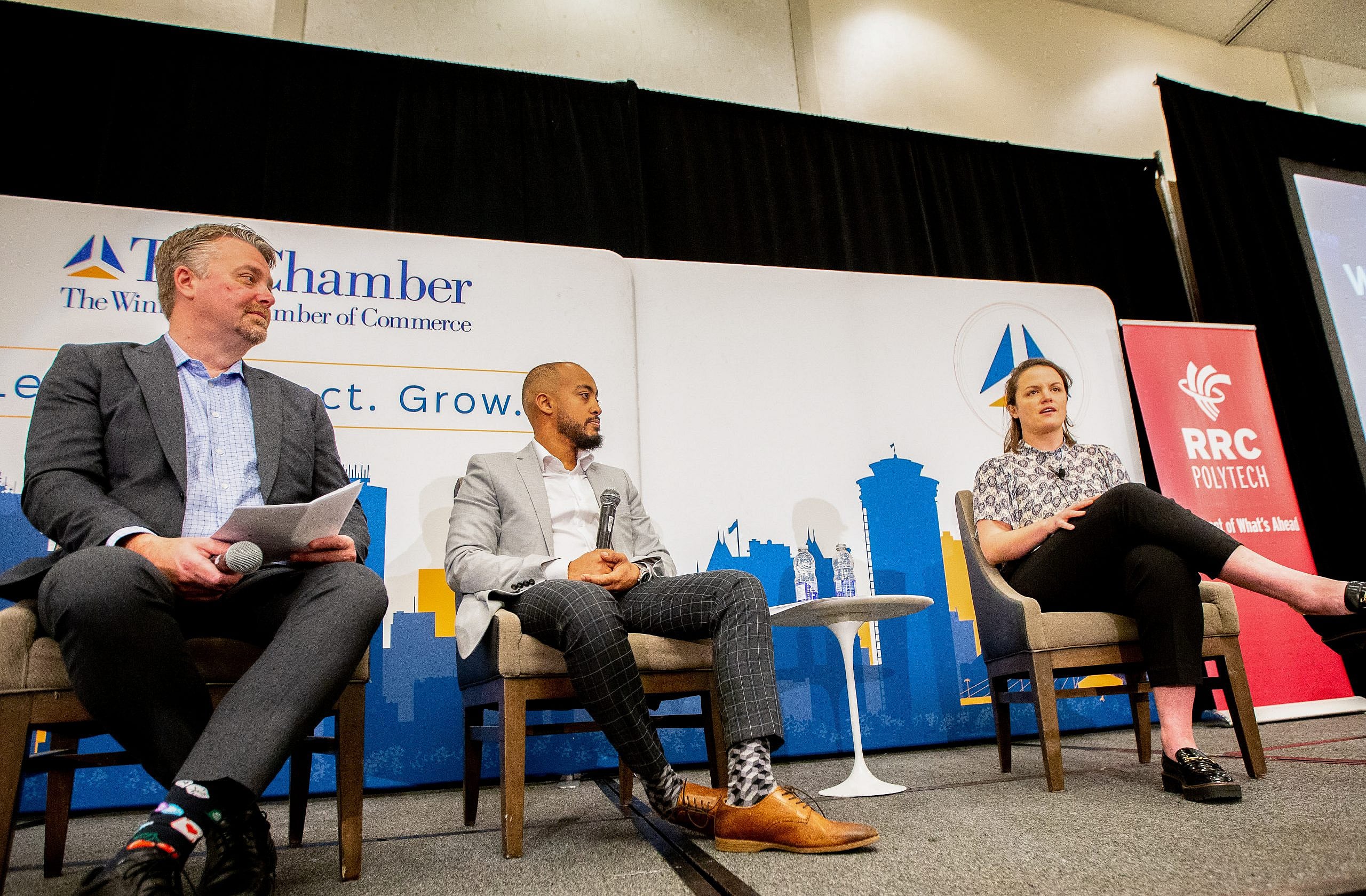
Photography by Daniel Crump
“Core team work hours – a few hours in a day where teams get together to collaborate on critical topics. For my team, that looks like 9-2pm Monday to Thursday and Fridays are left for focused work. Being intentional about meetings. Embracing asynchronous work through new methods of working,” said Chrissie.
During the fireside chat, Red River College Polytechnic’s Creative Communications student, Robel Berhane, asked Chrissie, “Many executives worry that remote and hybrid employees will struggle to connect with their co-workers. What does research say about workers and connections?”
Chrissie explained that research showed remote and hybrid workers were 52% more likely to say their company culture has improved compared to the entirely in-person worker. The flexibility attributed to a hybrid workweek is the primary reason for that change.
“Remote and hybrid workers with flexibility overwhelmingly rank flexible work policies as the number one driver for improving their company culture. Not drinks. Not free food. Flexible work itself improves company culture,” said Chrissie.
She went on to explain that flexibility also contributes to inclusion and connection. When your company offers flexibility, it shows that managers and higher-ups trust their employees to get their work done without extensive oversight and micromanaging. It shows that their managers instill trust in their employees, thus creating stronger connections and making your employees feel like they belong.
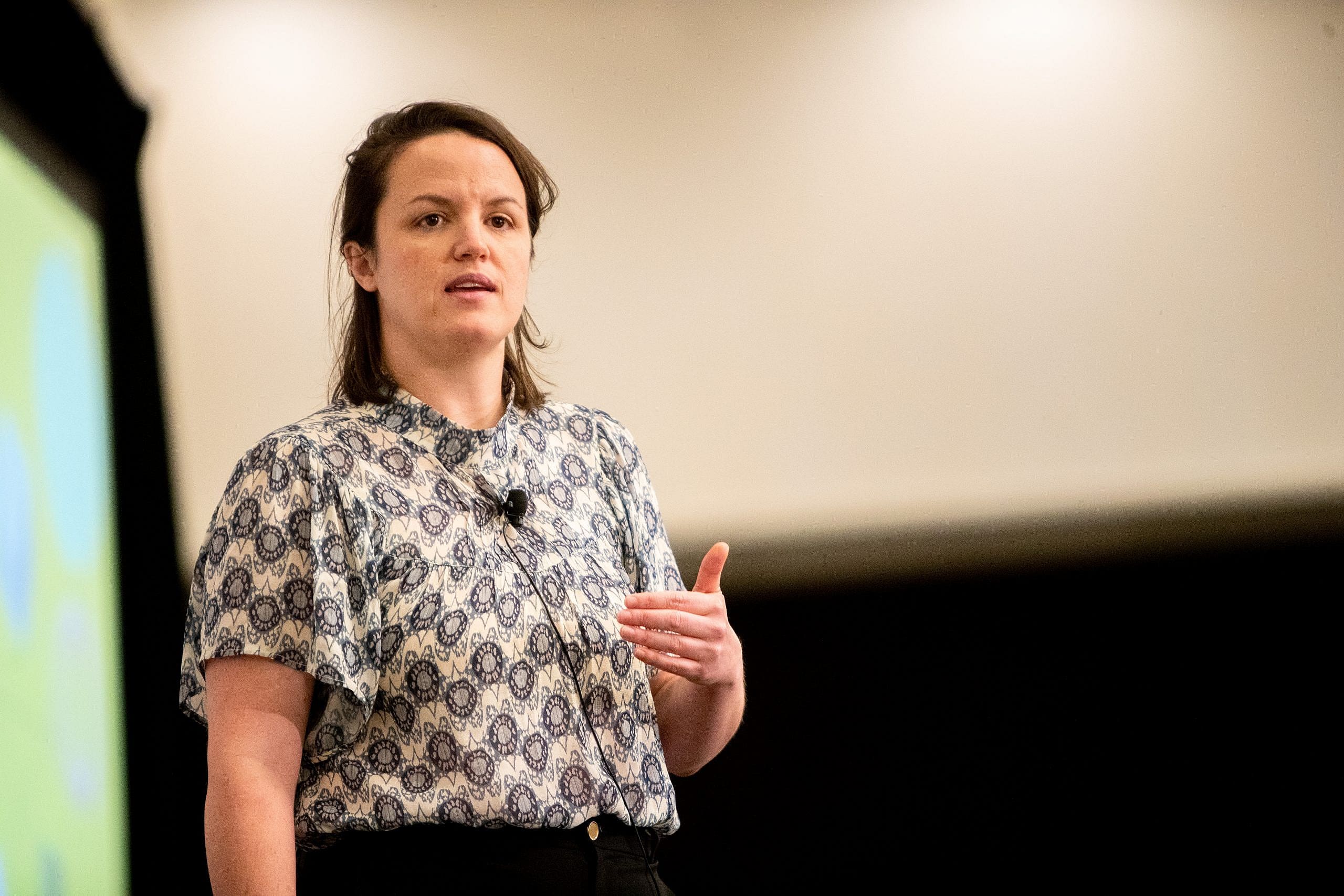
Photography Daniel Crump
The business community is used to thinking of the office as the centre of work with digital tools as secondary. Chrissie explained that was no longer the case. The digital space is your new headquarters. “If you doubt whether digital is your HQ, ask which one your business could do without; offices, or software? As leaders we need to shift where we invest our time and energy,” exclaimed Chrissie.
It is known that change is hard for everyone. It’s easy to stay comfortable in what you know, but it’s not the road to success. Research from the Future Forum Pulse survey backs that up.
“Winning the battle for talent involves making work better for people from all walks of life while also improving business outcomes,” said Chrissie. “This shift to a new way of working requires that we shift our mindset: digital is now our HQ, and I hope that this opportunity to redesign work to become more flexible, inclusive, and connected enables others to feel the same.”

